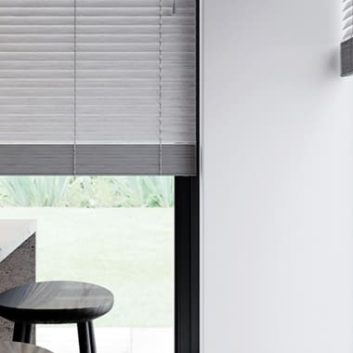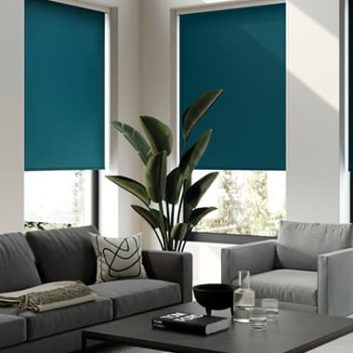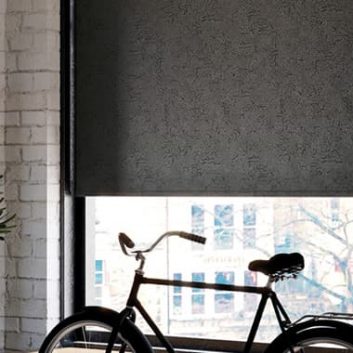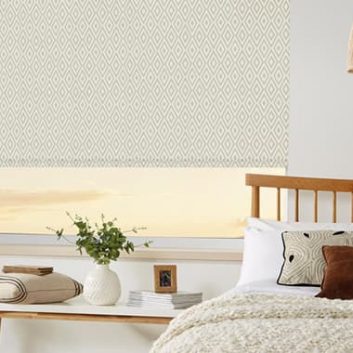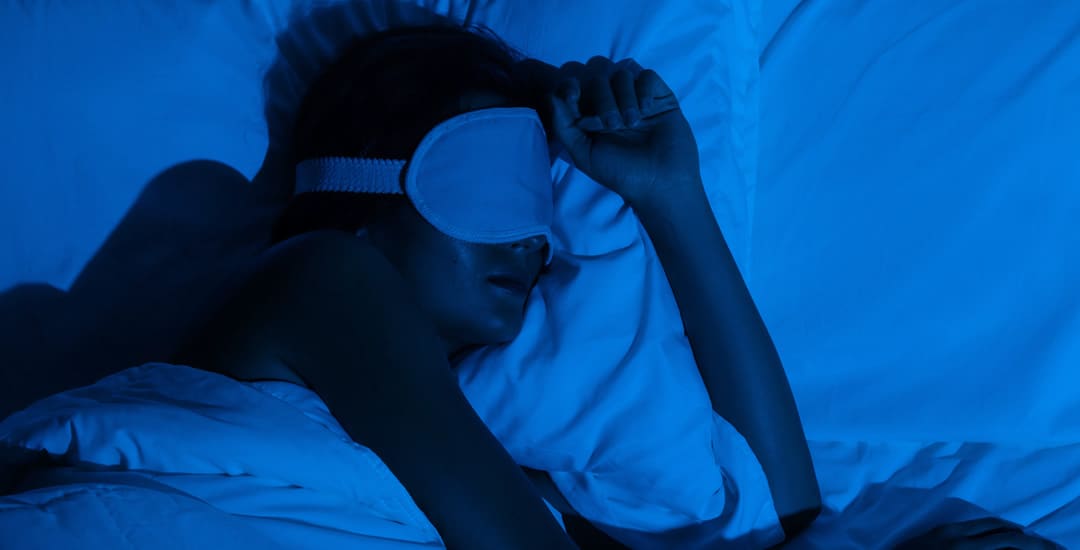
Do you sleep better in pitch black? Yes, in theory. This can be hard to accept for many people who find the presence of full blackout darkness a little jarring or unnerving; and if this sounds like you, then it can actually be harder, not easier, for you to get to sleep in a pitch-black room.
In terms of the body’s circadian rhythms and natural tendency to react to and work with the surrounding light and external environmental conditions, and without any cultural influences or outside factors to consider (such as working nights/otherwise needing to keep unusual hours) humans are programmed for sleep at the darkest point of the night, or when there is virtually no natural light available.
As a species and society then, humans sleep more deeply in pitch black, and even a low level of light pollution while we sleep can have an impact on how deeply we sleep. That said, being deeply asleep is one thing; but waking up at the right stage of the sleep cycle, having slept enough, feeling rested, and being ready to wake up, is not quite the same thing as sleep itself.
This means that waking up in pitch black isn’t necessarily a good thing, nor the most natural or beneficial way to wake up and get a good start to the day. If you wake up naturally and in your own time while it is still dark, that may well be ok; but if you are woken by the alarm rather than because you have slept for long enough, or if you otherwise wake up or have to get up in the dark when your body isn’t on board with that, this can actually cause sleeping in full darkness to work against you.
What has all of this information got to do with a blinds company though, and why am I addressing whether or not people sleep better in pitch black in a blog that’s ostensibly about window blinds? Because this question comes up a lot in relation to blackout blinds, and whether or not using them in the bedroom (and so, blocking potentially up to 100% of external light) is the best way to get a good night’s sleep.
With this in mind, in this blog post I will look at why pitch-black darkness is essential for sleep in some people’s opinions, the potential limitations or even disadvantages of this, and tell you overall which is better, sleeping in dim light or total darkness.
Do you sleep better in pitch black if you tend to wake up naturally regardless of the lighting conditions?
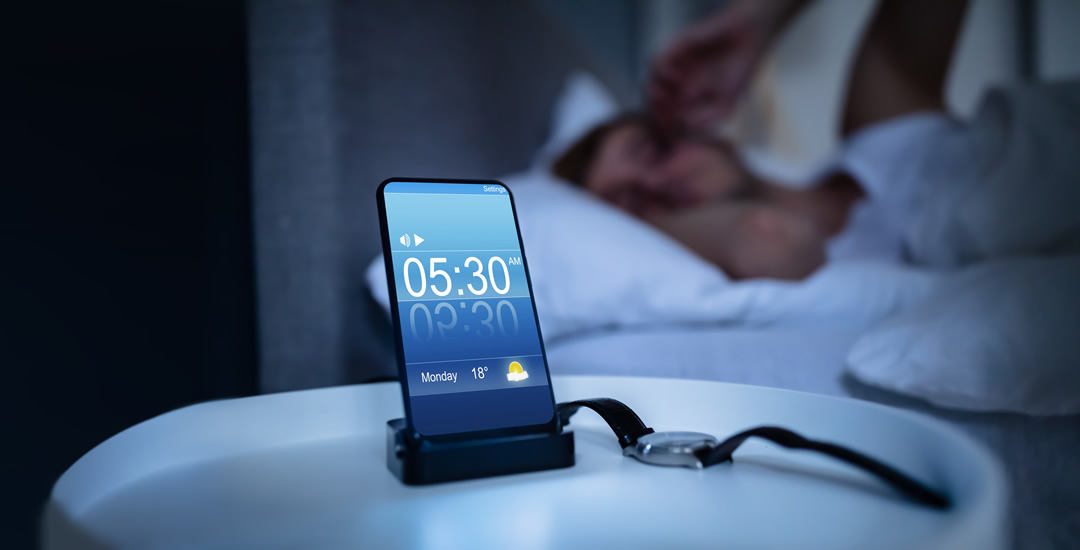
Kicking off then; if you’re lucky enough (or disciplined enough) to be able to go to bed at a sensible time or when you’re at the right stage of tiredness, sleep through the night and sleep restfully, and then wake up at the time you need or wish to without a problem, do you sleep batter in pitch black?
Yes, almost certainly. In this sort of situation where waking up itself isn’t a challenge, sleeping in pitch black will probably be beneficial to you, because the body and mind reaches its deepest sleep in pitch black and so, makes the most effective use of the sleep it gets. This gives your body the chance to run through the various stages of the sleep cycle without any external influences interfering with it.
Why pitch-black darkness is essential for sleep (according to some schools of thought)
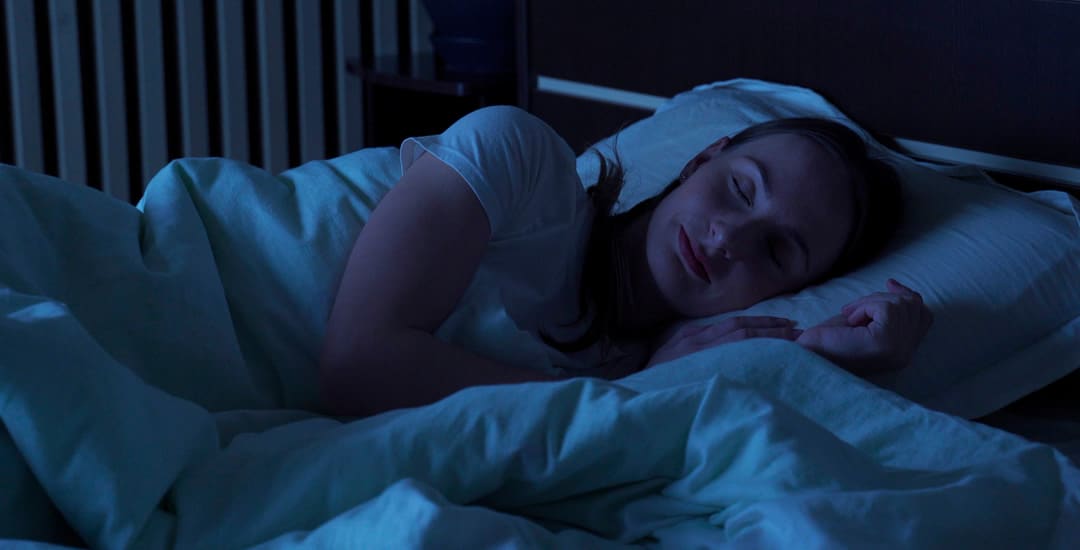
The body and mind responds to lighting conditions and other environmental factors, relying on these things to trigger unconscious cues that enable certain things to happen; everything from when to sleep and when to wake up, to how much to eat, and how much body fat to store!
When it comes to sleep, darkness tells our subconscious mind that it’s time to check out and rest, and so, pitch darkness is the most conducive state for allowing that to happen.
That said, pitch darkness at night can be hard to find these days without the use of blackout blinds and eye masks and so on, because we’re so reliant on artificial light and so, subject to light pollution. But in evolutionary terms, that’s a very recent mark on the timeline of human history.
Our monkey brains still have us running around in loincloths and living in caves when it comes to how the presence of light and darkness impact upon our behaviours, moods, and even wellness.
Monkeybrain says darkness = sleep, brightness = let’s get on up and go hunt some mammoths.
Something you may note here, however, is that Monkeybrain does not necessarily understand the correlation between, say, getting up at a certain time = the ability to earn the money needed to pick up a week’s worth of frozen mammoth burgers from the local Asda, nor that for instance, staying up past a certain time = the chance to consume much fermented apple beverage at the local watering hole with one’s tribe.
What’s the answer to Monkeybrain sleep problems in a Gotta-Pay-The-Bills-Brain life then? Well…
Which is better, sleeping in dim light or total darkness?
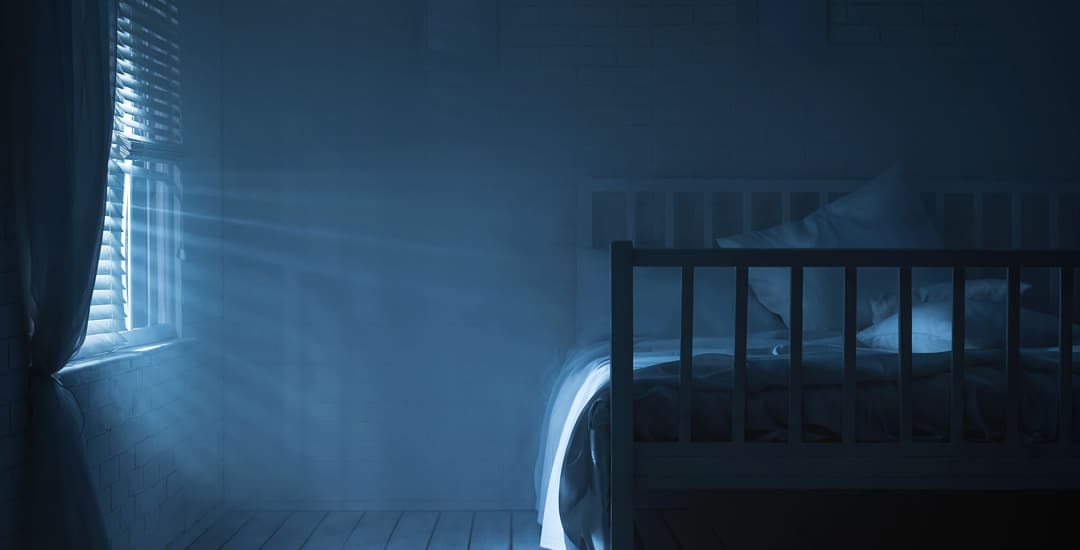
Sleeping-wise, darkness all the way. Unless, as I alluded to in the intro, you’re unnerved by or scared of the dark to the point that it makes it hard for you to get to sleep or stay asleep, or it makes your sleep restless or full of anxiety.
With that caveat out of the way though, you cannot consider the standalone question of which is better in terms of sleep alone, but must also consider which is better overall, factoring in the important conclusion of sleeping, being, the need to wake up again afterwards.
This is perhaps the most important part of the question. You might sleep most deeply in the dark, but if and when you need to wake up and particularly, get up, being very firmly, deeply asleep and being jarred awake or being unable to wake up at all due to the fact that the lack of light is telling your body to keep on slumbering is really not going to work in your favour.
The ideal situation would be to sleep in total darkness, but to wake up to light; this sort of mix would both help to induce and maintain sleep, and then to enable us to wake up naturally and comfortably, feeling refreshed. How can we balance these two seemingly contradictory needs though? There are a few directions this can take.
The first is that you might simply find that your own need for sleep and the right conditions of darkness and light for this (and waking up) just naturally match the surrounding environmental conditions. Setting aside the potential issue of light pollution, you feel sleepy when it gets dark, sleep through the darkest hours, and then either awaken as it gets light due to the light, or incidentally. If this sounds like you, then you have a far healthier sleep life than most of us!
A second direction to this would be to artificially darken your bedroom to induce and maintain sleep, which can be fine if you wake up naturally after you’ve had the required amount, whether it is light or dark out, and feel refreshed from this.
However, if you have erratic sleep patterns, find it hard to get to sleep or stay asleep or wake up at the right time, suffer from insomnia, or otherwise find managing your sleep cycle something of a challenge, sleeping in pitch darkness (or more to the point, awaking to pitch darkness, particularly if woken by an alarm or the need to get up when you’re not ready) is probably not going to work for you.
In this sort of situation, sleeping in a dim or even almost-dark room might be the best middle ground approach. This would allow a certain level of light to filter through so that your subconscious can keep a handle on the approximate time, and begin to bring you up from the deepest parts of your sleep cycle far more gently than occurs if you’re deeply asleep and then forced awake immediately.
The flipside of this or a somewhat lateral approach to things is that rather than leaving the impact of natural lighting as-is, you control both your darkness and your light – using a blackout blind to provide the darkness (or block unwanted light) and a daylight alarm clock to emulate the rising sun and wake you up naturally at the time you want it to.
How dark should your room really be for sleep?
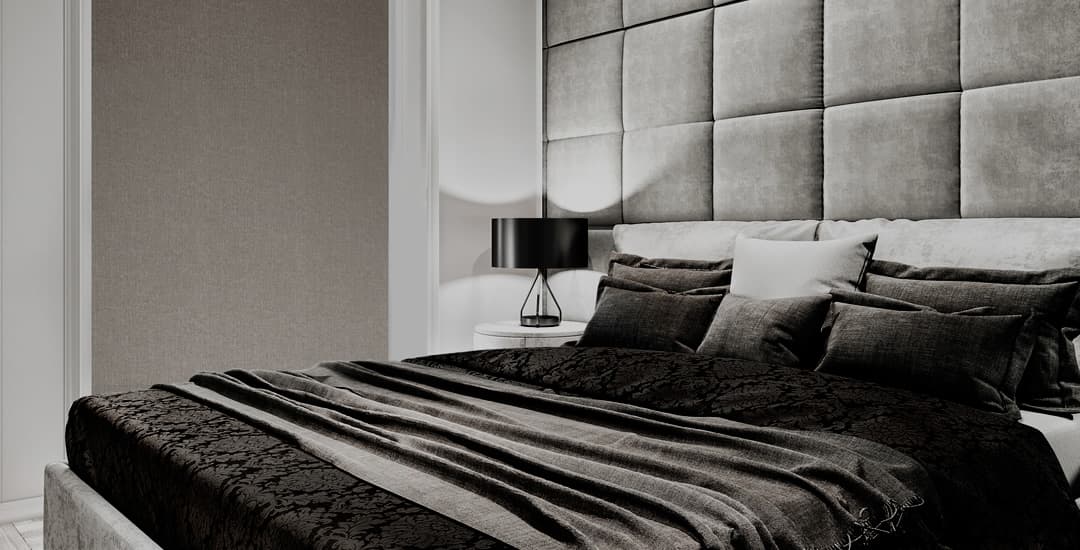
For sleep itself, the darker the better. However, the logic of this approach absolutely face-plants into the wall when it comes to the level of light needed by most of us to wake up without a shock.
Ideally, your room should be as dark as possible to allow you to sleep, which means closing doors if relevant to block light pollution from inside of the house, and using blinds (blackout in many cases) to block light pollution from outside.
However, it is also a good idea for most people to maintain some sense of time and orientation in terms of the natural lighting levels, either by means of filtering but not blocking sunlight coming into the room, or by emulating it with a daylight alarm clock.
The correct approach to this or the balance that works for any one person can be quite different to that for someone else – which can be a problem if you and your partner aren’t on the same page – but it does mean that you might want to experiment a little, to find the balance that works best for you personally.

